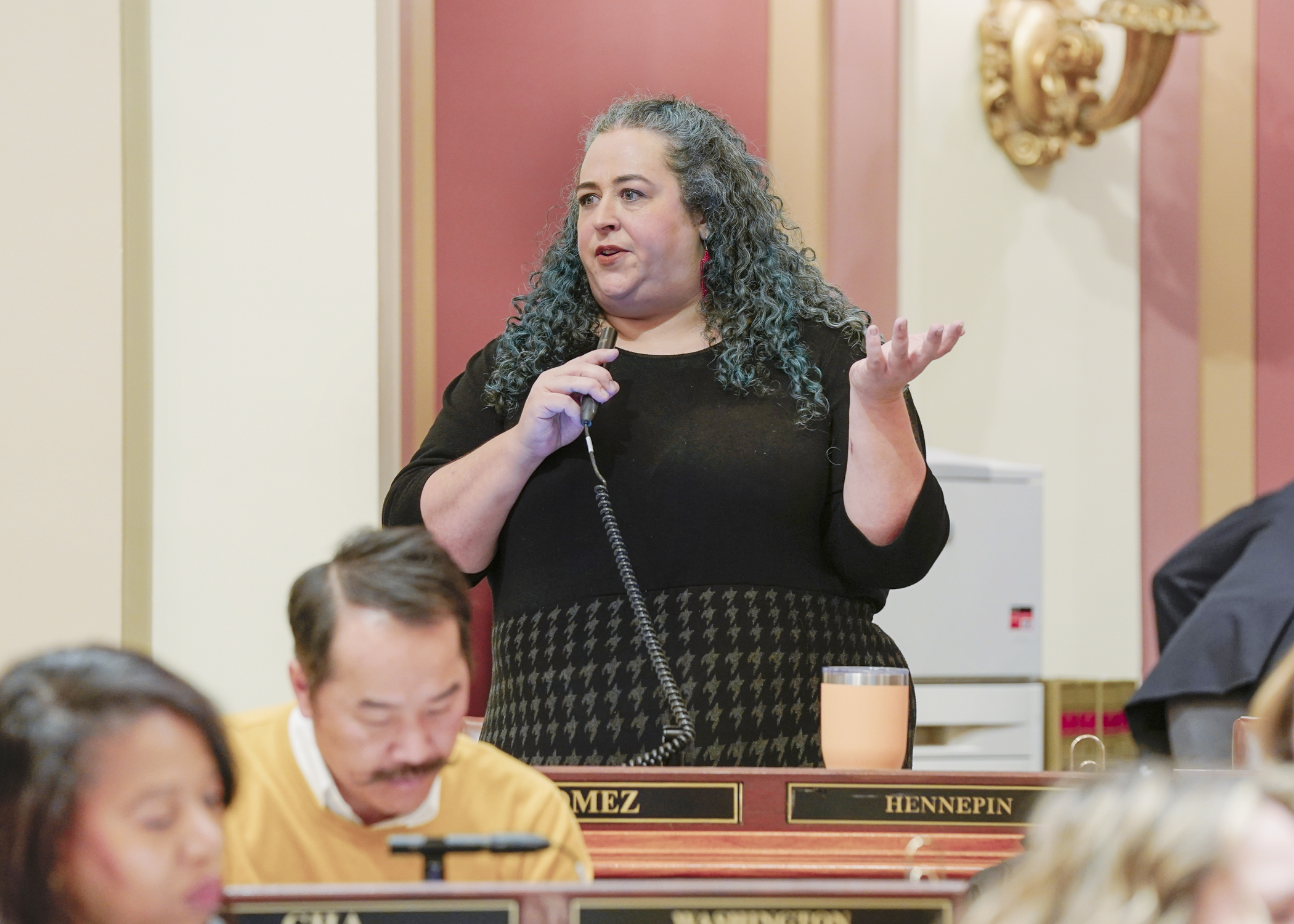With bipartisan support, House passes tax conformity bill

On the seventh day, the House didn’t rest, but instead passed its first bill of 2023.
By a 132-0 vote, the House passed HF31, which would bring the state’s tax code into conformity with federal tax law on 46 provisions that have been signed into law by U.S. presidents since 2019.
Sponsored by Rep. Aisha Gomez (DFL-Mpls), the bill’s changes would — according to the Revenue Department — need to be signed into law by Friday for the department to make the appropriate changes on state tax forms in time for filing.
The Senate is slated to consider an almost identical bill (SF25) Wednesday.
The bills have been amended in both bodies to extend the deadline for amended filings pertaining to previous tax years, as the bills’ provisions will inspire many individuals and corporations to amend their filings for tax years 2019 through 2021.
In touting the House bill, Gomez spoke of how it addresses tax treatment for student loans and the hospitality industry, such as for restaurants and performance venues affected by the pandemic.
“The shuttered venues provision really, really needs to be taken care of,” Rep. Greg Davids (R-Preston) said. “That and all of the other conformity pieces are really going to help the people of Minnesota.”
The simplest summary of the bill is this: Any state taxes that reference either federal adjusted gross income or federal taxable income will be altered, as definitions for calculating those two figures have been changed by seven federal acts since late 2019. Those acts have borne such nicknames as the CARES Act, the American Rescue Plan Act, the Infrastructure Investment and Jobs Act, and the Inflation Reduction Act.
Updates at the state level mostly pertain to additions, subtractions, deductions and credits that would be changed because of a new definition of federal adjusted gross income or federal taxable income. Included among them are charitable contribution deductions, the dependent care credit and working family credit, and property tax refunds.
Rep. Pat Garofalo (R-Farmington) was encouraged by the bipartisanship that went into crafting the bill.
“I hope that this is a sign of things to come that, for those items that we do agree on, we can work on both sides of the aisle to enact those things individually, as single bills,” he said.
Related Articles
Search Session Daily
Advanced Search OptionsPriority Dailies
Speaker Emerita Melissa Hortman, husband killed in attack
By HPIS Staff House Speaker Emerita Melissa Hortman (DFL-Brooklyn Park) and her husband, Mark, were fatally shot in their home early Saturday morning.
Gov. Tim Walz announced the news dur...
House Speaker Emerita Melissa Hortman (DFL-Brooklyn Park) and her husband, Mark, were fatally shot in their home early Saturday morning.
Gov. Tim Walz announced the news dur...
Lawmakers deliver budget bills to governor's desk in one-day special session
By Mike Cook About that talk of needing all 21 hours left in a legislative day to complete a special session?
House members were more than up to the challenge Monday. Beginning at 10 a.m...
About that talk of needing all 21 hours left in a legislative day to complete a special session?
House members were more than up to the challenge Monday. Beginning at 10 a.m...